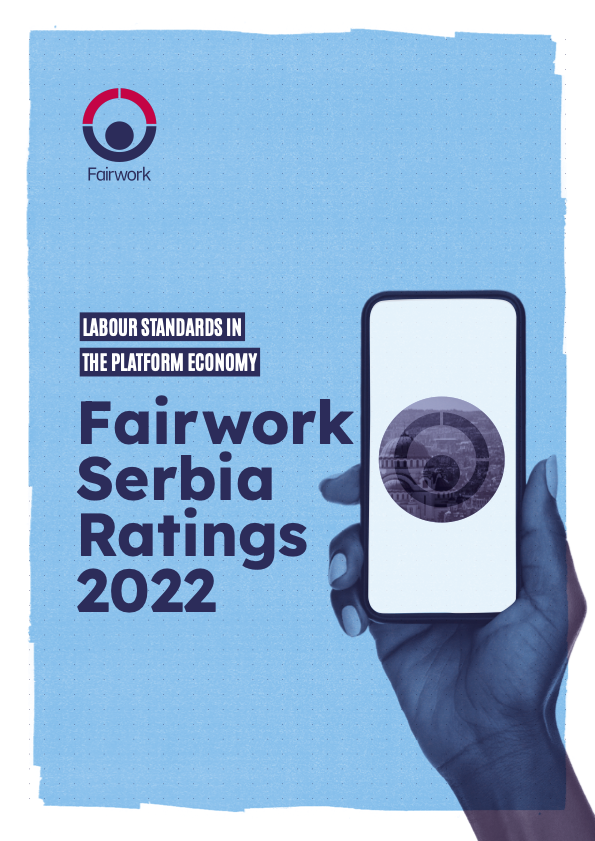Fairwork Serbia Ratings 2022: Labour Standards in the Platform Economy


The Serbian platform economy has grown substantially since it first became a feature of the economic landscape in 2006. Driven by the arrival of food delivery, ride-hailing and domestic work platforms at first, and later the arrival of larger, international businesses, this growth has been appreciated by workers to a reasonable degree because of the flexibility of the work on offer, and the barriers facing young people attempting to enter the formal economy.
However, the employment model of many platforms depends on third-parties offering “partnership agreements” – workers are either classed as self-employed, or they are hired through intermediaries. In consequence, workers are often not protected by existing labour rights meaning they are unable to access unemployment benefits, paid sick and annual leave and maternity / paternity benefits.
Fairwork is an international action research project that evaluates working conditions in the platform economy in more than 30 countries. Digital labour platforms are scored against five principles of fair work: Fair Pay, Fair Conditions, Fair Contract, Fair Management and Fair Representation. For each principle, platforms can score up to two points, if there is sufficient evidence that platforms meet all the relevant thresholds.
In this report for 2022, the Fairwork Serbia team examine the working conditions at six platform companies: Glovo, Wolt, CarGo, Mr.D and Uradi-zaradi. While Wolt and Uradi-zaradi scored six points each, Glovo scored only three, and the remining platforms zero. Despite improvement since the Serbia 2021 ratings, there is clearly substantial room for improvement.